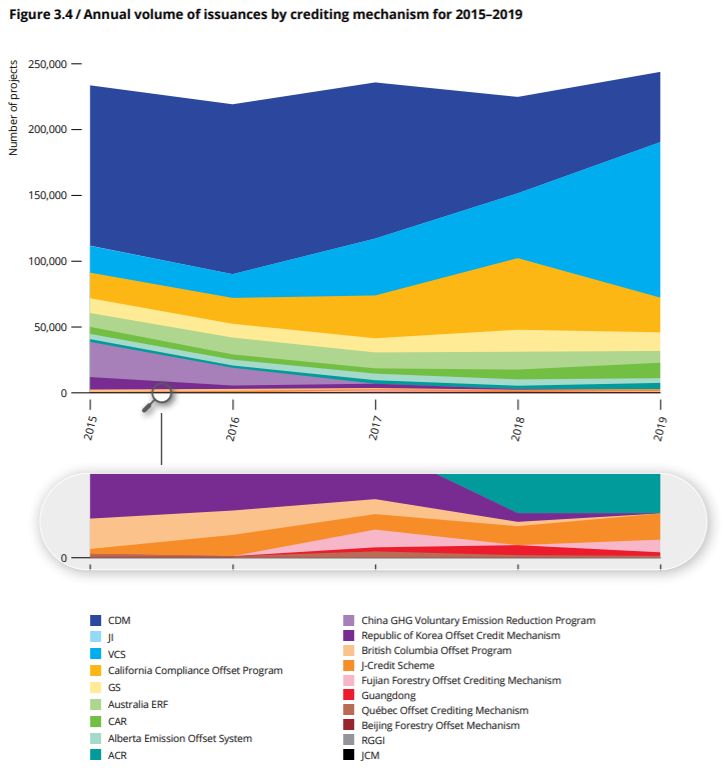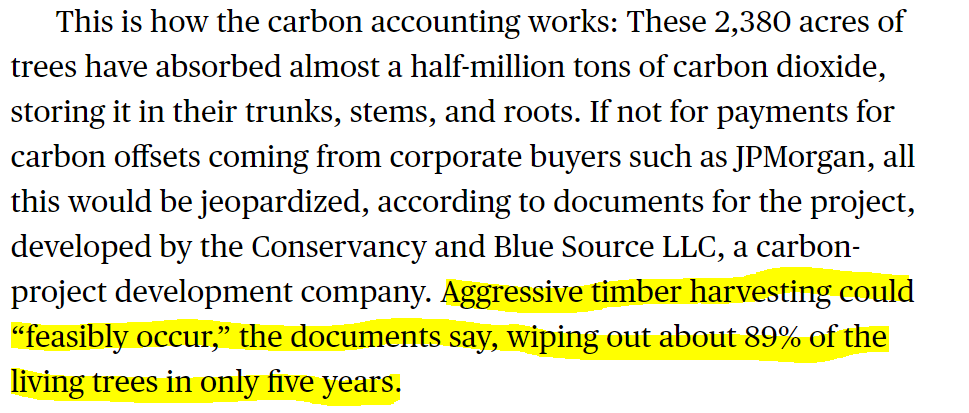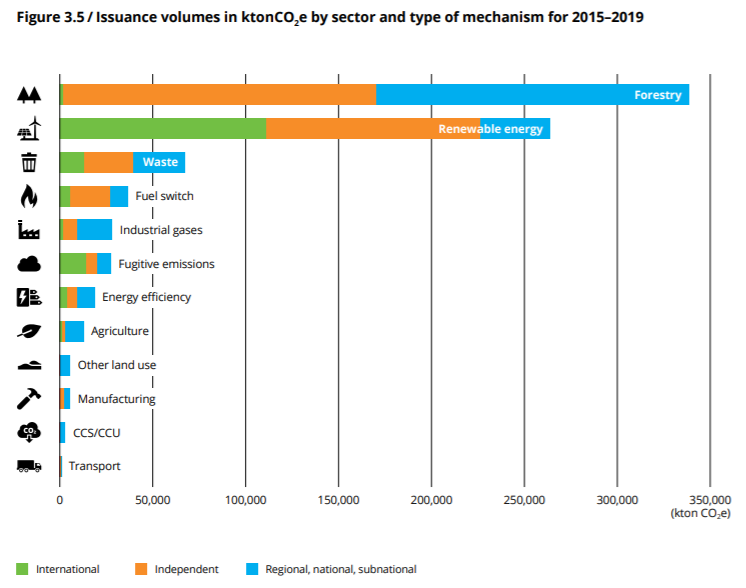In particular, I was triggered this weekend by listening to @iamrashidajones and @BillGates talk climate change on their podcast this week, and hearing this... http://gatesnotes.com/Podcast/Is-it- …
It was like a bat signal for my (the worst) superhero alter-ego persona: Well Actually It's Pretty Nuanced Twitter Thread Man
On the other end of the spectrum from Gates is @drvolts, whose second substack missive was a conversation with David Victor and @dcullenward who think the fundamental premise of offsets is flawed and can't work.
For the record, @dcullenward here lays out what I think is probably the most compelling argument about the fundamental problem with offsetting here.
And it's not about additionality, verification or permanence, it's about POLITICAL ECONOMY (ffs)
And it's not about additionality, verification or permanence, it's about POLITICAL ECONOMY (ffs)
Here's the link to the whole interview. The whole series of posts from that conversation are great, btw, and are all about the climate movement falling out of love with carbon pricing in general https://www.volts.wtf/p/carbon-offsets-arent-working-and
Now, here's what bugs me about the whole discourse about offsets though: everyone wants to know are they "good" or are they "bad."
But unfortunately I don't think its actually so easy to say.
But unfortunately I don't think its actually so easy to say.
For instance, regarding that Cullenward argument about incentives and lobbying.
It would be unequivocally a bad outcome if Amazon and Stripe and the rest started lobbying against mandatory climate action by pointing to their voluntary efforts.
Is that happening, though?
It would be unequivocally a bad outcome if Amazon and Stripe and the rest started lobbying against mandatory climate action by pointing to their voluntary efforts.
Is that happening, though?
(This is a real question that I don't know the answer to)
What if they AREN'T?
What if, in fact, we have reached a place in climate as an issue that any such activity will be called out by the growing climate movement, and therefore they aren't willing to go there?
In that case, are they doing something BAD by buying offsets?
What if, in fact, we have reached a place in climate as an issue that any such activity will be called out by the growing climate movement, and therefore they aren't willing to go there?
In that case, are they doing something BAD by buying offsets?
So let's pause for a second and call out something else that drives me nuts about the offsets issue: conflation of voluntary vs. compliance offsets.
People talk about them in the same breath all the time, but they have different problems.
People talk about them in the same breath all the time, but they have different problems.
Compliance means a polluter who is required to reduce omissions can buy offsets instead.
It represents an actual codification of the political economy problem Cullenward lays out. It allows polluters to avoid having to cut their own emissions.
It represents an actual codification of the political economy problem Cullenward lays out. It allows polluters to avoid having to cut their own emissions.
They are also (I think) the bulk of the offsets that are out there.
Though I haven't seen a nice clean breakdown of compliance vs. voluntary, when I eyeball this graph, it seems like most are compliance (right?) https://openknowledge.worldbank.org/bitstream/handle/10986/33809/9781464815867.pdf?sequence=4&isAllowed=y
Though I haven't seen a nice clean breakdown of compliance vs. voluntary, when I eyeball this graph, it seems like most are compliance (right?) https://openknowledge.worldbank.org/bitstream/handle/10986/33809/9781464815867.pdf?sequence=4&isAllowed=y
It's interesting because compliance offsets are often BETTER when you look at how strict the protocol for their creation is.
For instance, the @AirResources "Improved Forestry" offset requires you to have more trees than a regional baseline to sell credits.
For instance, the @AirResources "Improved Forestry" offset requires you to have more trees than a regional baseline to sell credits.
Meanwhile, the @CarbonRegistry protocol says any tree that would be marketable can be sold as an offset.
A much lower bar. https://www.bloomberg.com/features/2020-nature-conservancy-carbon-offsets-trees/
A much lower bar. https://www.bloomberg.com/features/2020-nature-conservancy-carbon-offsets-trees/
I'd say, it's pretty clear given the verification and additionality problems inherent with *many* types of offsets, *particularly* those associated with forests and soil, it's overwhelmingly clear that we should creating regulatory schemes that allow compliance offsetting.
Note my wiggle words!
If you require companies to offset by buying @Climeworks credits (at 100x the cost) that's a very different story!
(You'd also see a lot fewer companies relying on offsets!) https://www.theatlantic.com/science/archive/2020/12/how-to-donate-to-fight-climate-change-effectively/617248/
If you require companies to offset by buying @Climeworks credits (at 100x the cost) that's a very different story!
(You'd also see a lot fewer companies relying on offsets!) https://www.theatlantic.com/science/archive/2020/12/how-to-donate-to-fight-climate-change-effectively/617248/
But what about voluntary credits?
I visited an offset project by @nature_org. It was a nice project. Woods were being conserved. A big, professional conservation org was getting revenue.
The numbers show there are a lot of projects like this happening. Is that BAD?
I visited an offset project by @nature_org. It was a nice project. Woods were being conserved. A big, professional conservation org was getting revenue.
The numbers show there are a lot of projects like this happening. Is that BAD?
For sure all of the problems with offsets were present: we don't know (esp given climate disruption coming to our forests) if it's permanent...
We DEFINITELY don't know how much carbon was additional
We DEFINITELY don't know how much carbon was additional
But is the world WORSE because some company voluntarily gave money to TNC?
It's hard for me to say yes. Especially since we have some indication that MANY of the companies that do this, are also trying to reduce emissions in other ways. https://www.carbonfootprint.com/docs/cfp_carbon_offsetting_and_reduction_v10.pdf
It's hard for me to say yes. Especially since we have some indication that MANY of the companies that do this, are also trying to reduce emissions in other ways. https://www.carbonfootprint.com/docs/cfp_carbon_offsetting_and_reduction_v10.pdf
(Yes, I know that graph comes from a voluntary offset company. Yes, I know that's problematic. No, I'm not convinced that means it should be disregarded entirely)
As I said in our episode, I do think we will need *most* of the climate solutions that offsets support.
And that yes, it would probably be better if it wasn't up to the random generosity of people and companies to support them.
But (for now!) that's what we've got.
And that yes, it would probably be better if it wasn't up to the random generosity of people and companies to support them.
But (for now!) that's what we've got.
So if you're a company that wants to go full gas on climate, and makes buying high-quality voluntary offsets a (small? hopefully?) part of your strategy I'm not sure that makes the world worse.
(As long as you don't then lobby against more substantive, sectoral climate policies)
(As long as you don't then lobby against more substantive, sectoral climate policies)
Which then brings me to my last thought: voluntary offsetting delays more substantive action if policy-makers, activists, and citizens LET that happen.
I'm not sure it happens automatically.
I'm not sure it happens automatically.
(ok that was a lot sorry to clog up your feeds HAPPY SOLSTICE!)

 Read on Twitter
Read on Twitter












